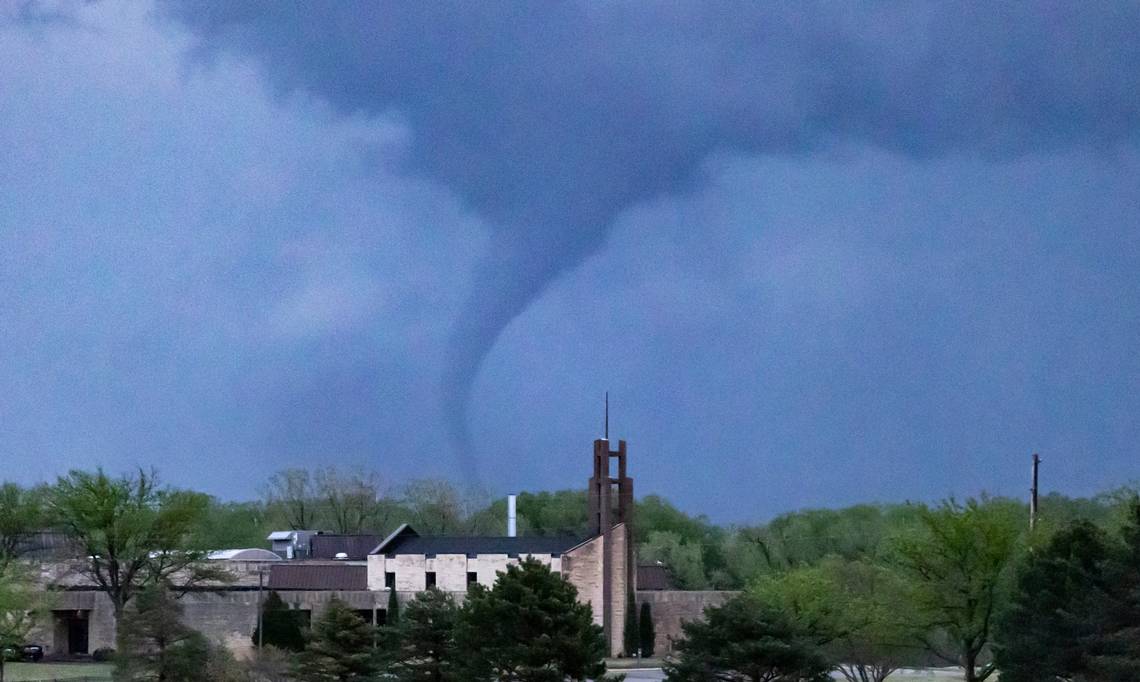As large hail and damaging winds swept through the Kansas City area Tuesday night, a Reddit user posted, “Looks like we get to test the Tonganoxie Split.”
In Kansas City weather lore, the small Leavenworth County town of Tonganoxie has an outsized role. Located about 35 miles west of Kansas City, with a population of 5,573, Tonganoxie gives its name to the legend of the “Tonganoxie Split,” which is mentioned in social media comment sections whenever there’s severe weather.
As most urban legends go, the definition of the “Tonganoxie Split” is as cloudy as a rainy day.
The “Tonganoxie Split” is loosely described as a phenomenon where storms and tornadoes coming across Kansas split north and south or dissipate as they reach Tonganoxie, sparing the Kansas City area from the storm’s worst effects.
Is the ‘Tonganoxie Split’ a real thing?
According to National Weather Service meteorologists Hallie Boza and Brent Pesel, it’s not.
“It’s not been seen scientifically to have any real impact, and there are storms that go over there all the time,” Boza said.
While some people believe that cities are less likely to be hit by tornadoes, Pesel said this is because cities just take up less land than rural areas.
As to the idea that heat-island cities repel tornadoes, Pesel said, “I do not know of any published research that correlates” hotter cities with tornadoes.
And tall buildings don’t protect urban areas. A National Weather Service information sheet said, “Tornadoes are typically 5 to 10 miles tall. A tall building with a height of 500 to 1000 feet can not deflect or destroy a tornado.”
History of the ‘Tonganoxie Split’
Kansas City residents have used the term “Tonganoxie Split” for decades.
A 1984 Kansas City Times article said that, “Television weatherman Dan Henry is fond of announcing the ‘Tonganoxie split’ during drought seasons when the rain hits Topeka and Kansas City but misses areas in between.”
At a 1994 weather Q&A event, a group of meteorologists addressed the so-called “weather myth” that tornadoes avoid Tonganoxie. A radio meteorologist remarked, “Until you get these questions out … you don’t get rid of the myths,” as detailed in a Kansas City Star article.
Urban tornado myths
Kansas City has neighbors with these superstitions too.
In Nebraska, residents tell stories of the mythical Omadome, which they say protects Omaha from severe weather. Unfortunately, this theory was recently proven wrong. On April 26, eastern Nebraska and western Iowa endured 19 confirmed tornadoes, with one death and hundreds of homes destroyed.
Do you have more questions about weather in the Kansas City area? Ask the Service Journalism team at kcq@kcstar.com.
